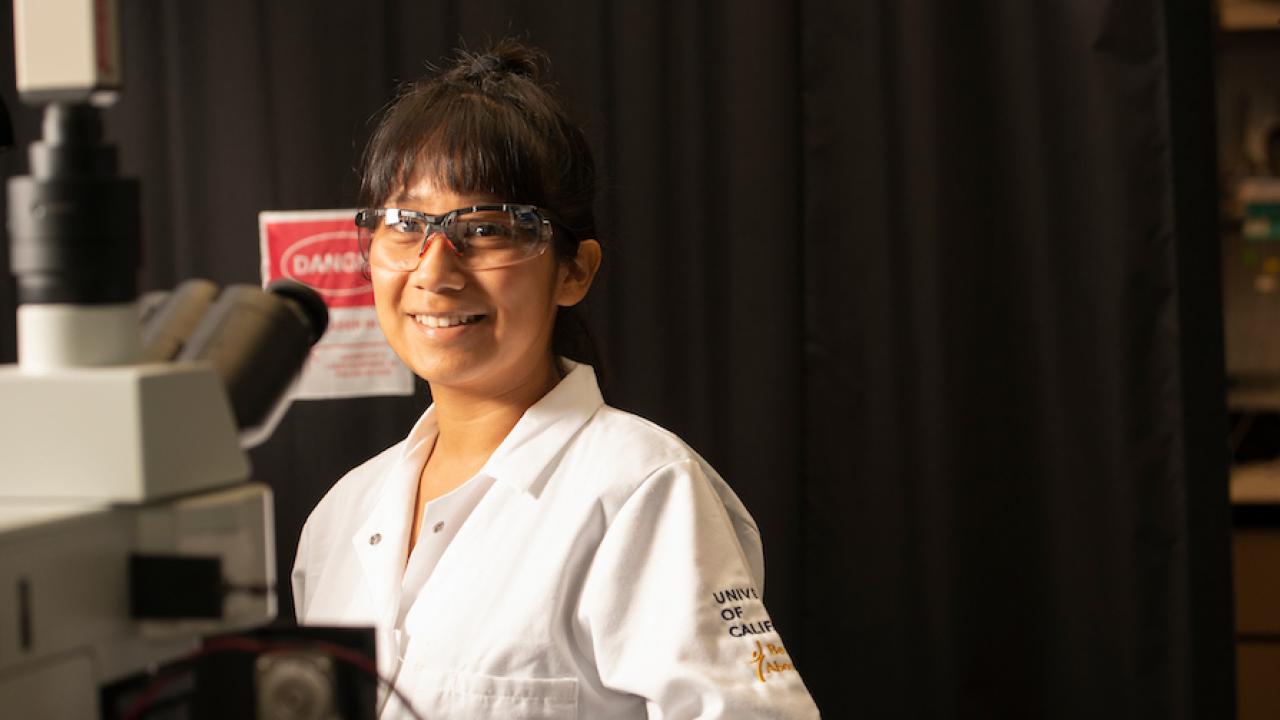Undergraduates have many opportunities to research
Are you interested in using science to solve critical problems? Undergraduates in the College of Biological Sciences have numerous opportunities to apply knowledge from the classroom to the real world.
Our undergraduate researchers ask important questions: How do physical forces lead to cancerous cells? And what could this mean for diagnosis and treatment? How can you trace human family origins through genomics?
Working with renowned life sciences faculty, they have a close and personal view of the science leading to breakthroughs. Discoveries start with a foundation in curiosity. Here are four undergraduates who followed their interests toward meaningful questions.
1. Tracing family origins
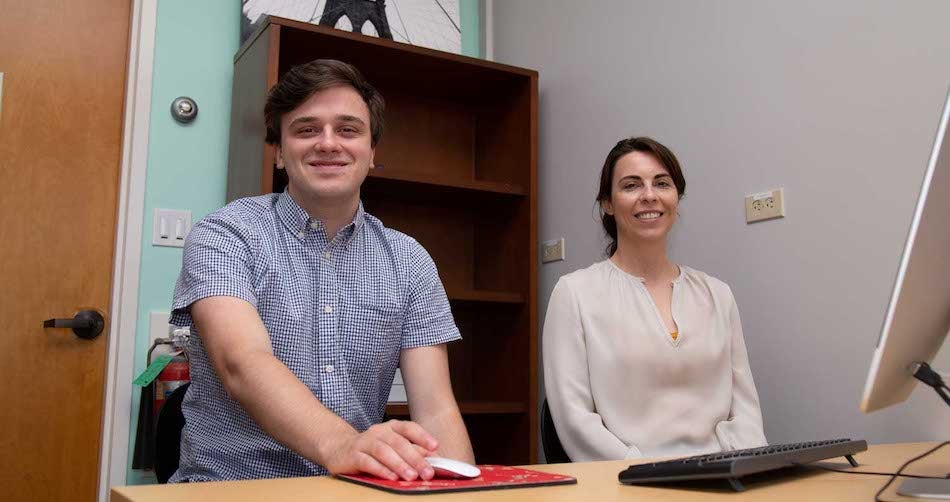
Cole Williams found a passion for genetics at an early age. Then, he became a genetics and genomics major and College of Biological Sciences Undergrad of the Year. In the lab of associate professor Brenna Henn, Department of Anthropology, Williams worked to understand familial relationships in African hunter-gatherer and pastoralist groups. But he ran into a problem. The publicly available computer algorithms Williams used couldn’t make sense of his study population’s genomic data. So Williams found a different solution. He wrote a new algorithm.
2. Experimenting to find your interests
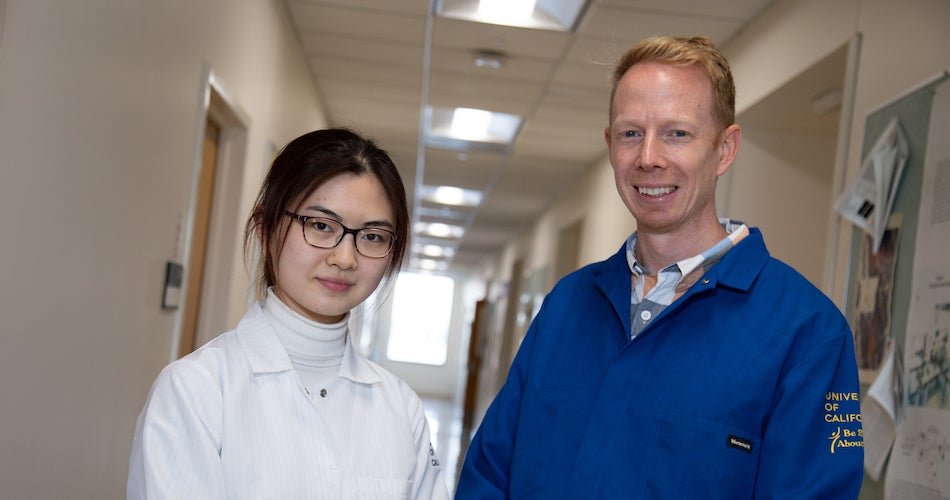
Part of the college experience is figuring out what you don’t want to do. Passion, like discovery, is found through trial and error. Biological Sciences and psychology senior Wenzhe Li rotated through two labs at UC Davis before finding a muse in cytoplasmic dynein, a motor protein used for intracellular transport. Aided by her interest in psychology, Li aims to link cellular and molecular biology processes to mind and behavior.
3. Researching in a new field
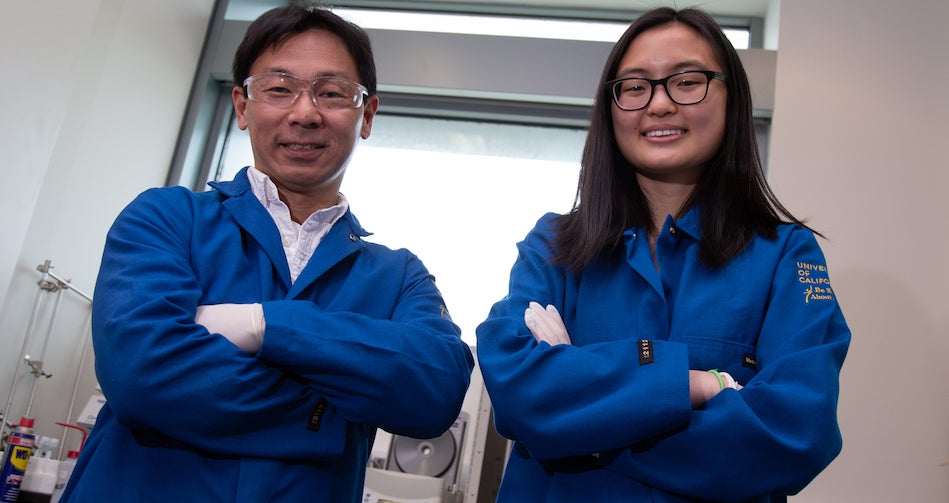
The human body is composed of trillions of cells, which are influenced by a myriad of chemical and environmental forces. But there’s another force at work here, one that’s tugged at undergraduate researcher Joleen Cheah’s curiosity. Mechanobiology is a developing field that studies how physical forces affect cells. Cheah — a senior in biological sciences — is on the ground floor, working in the lab of professor Soichiro Yamada, Department of Biomedical Engineering.
4. Switching from history to biochemistry
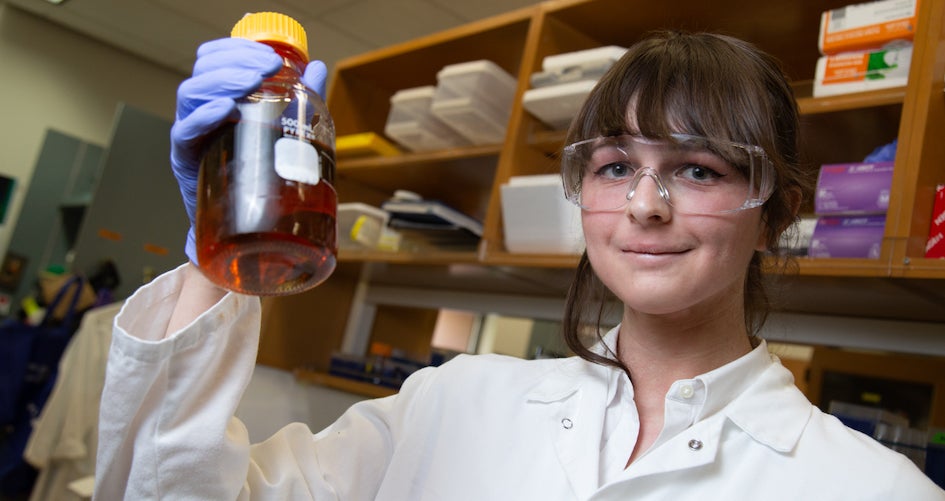
When Lynne Hagelthorn was in high school, she planned to study history as a college student. She loved speech and debate and was fascinated by how humans use language to understand and construct reality. But during her junior year, she took a biotech class and through it secured an internship in the lab of distinguished professor Richard Michelmore, director of the UC Davis Genome Center. Everything changed after that. A member of assistant professor Philipp Zerbe’s lab, Hagelthorn toured the chemical world of plants and became a biochemistry and molecular biology major, learning how plant chemical compound can be used to benefit human health.
5. Clamming at the Bodega Marine Laboratory
Every summer, the UC Davis Bodega Marine Laboratory offers summer classes to undergraduate students interested in coastal and marine sciences. Marine and coastal sciences student Tessa Filipczyk spent summer 2019 taking classes and conducting her own research on the effects of clamming. In this video, she discusses what makes the Bodega Marine Laboratory a special place and how undergraduates can help solve environmental problems with their science.
6. Tide pooling in Horseshoe Cove
After hearing about the Bodega Marine Laboratory’s summer sessions from his friends, Michael Brito knew he had to check them out. Brito, a senior in marine and coastal sciences, spent the summer tide pooling in nearby Horseshoe Cove and exploring the importance of marine protected areas. He learned from top scientists in the field at a first-class research facility.
This year, Brito is acting as BML’s recruiter. Students interested in learning about the summer sessions can contact him at mrbrito@ucdavis.edu. He’s also holding office hours this quarter on Thursdays from 11 a.m. to 12 p.m. in Storer 1347.
Interested in learning more about undergraduate research opportunities at the College of Biological Sciences? Check out our undergraduate research blog.
Greg Watry is a science writer and communications specialist at the College of Biological Sciences.
